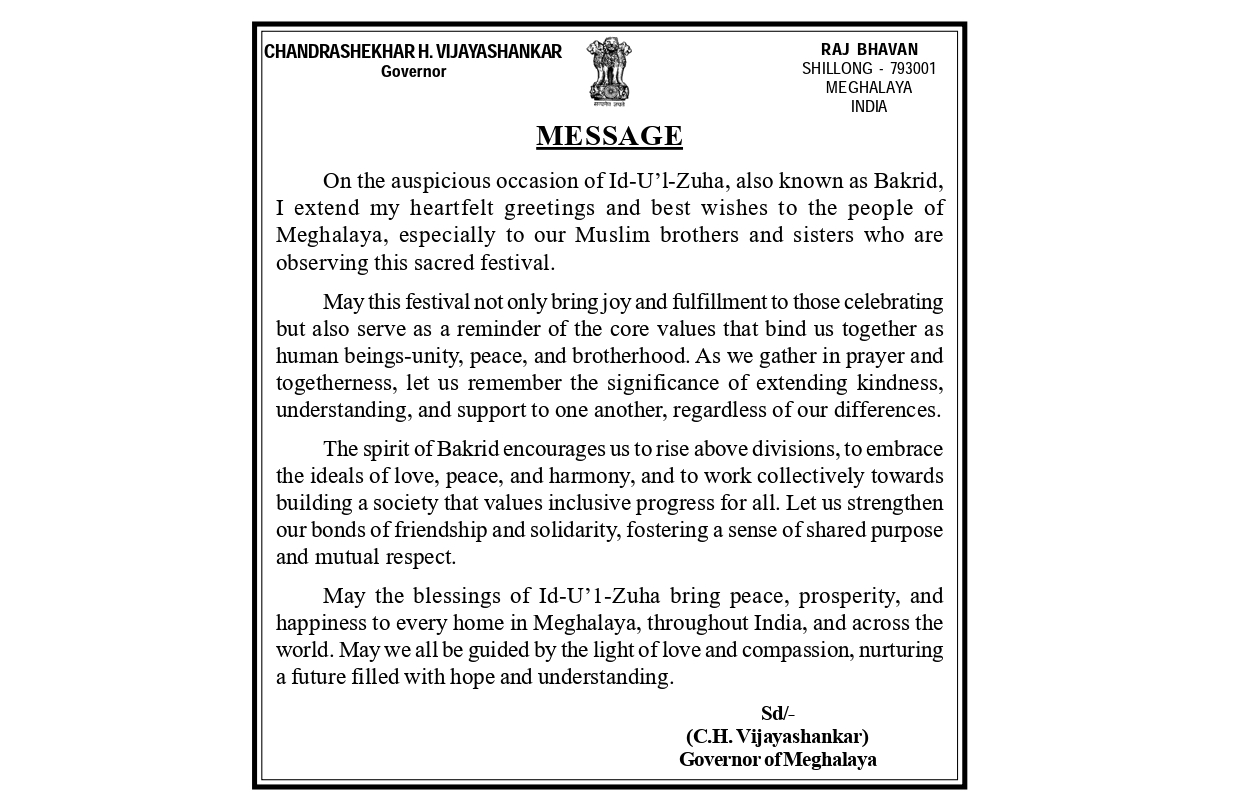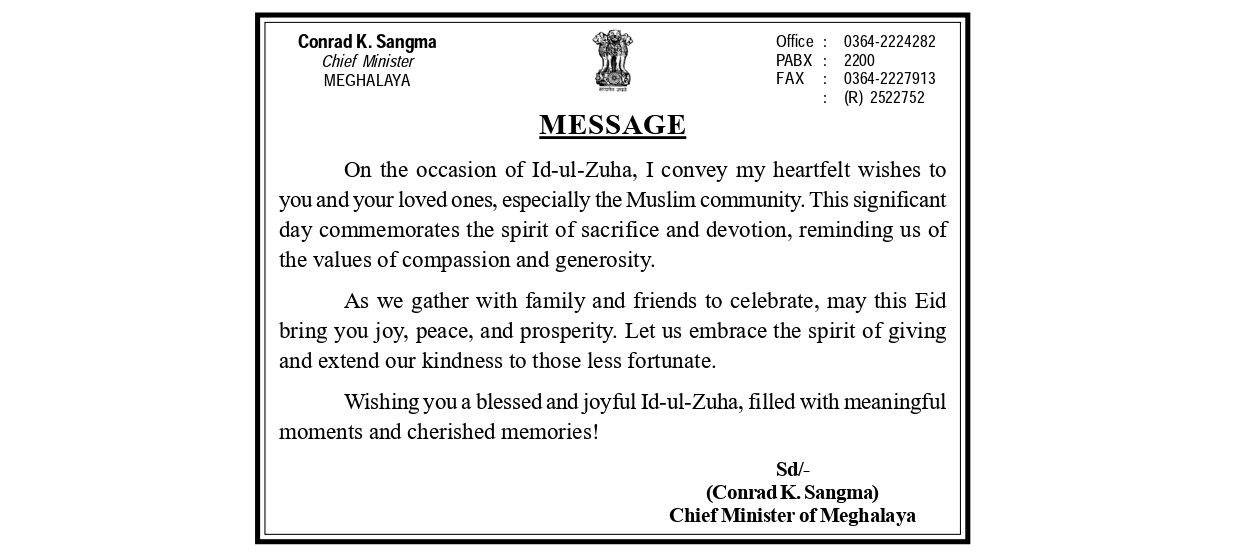[By O.R Shallam
Panaliar, Jowai]
The recent panel discussion on environmental issues hosted on the 4Front YouTube channel took an unfortunate and unexpected turn when two panelists —Mr. Reading War and Rev. Kyrsoibor Pyrtuh—diverted from the core topic and engaged in an unwarranted critique of the sacred Behdieṅkhlam Religious Festival and the culturally significant Chad Sukra Festival. Their remarks not only misrepresented the deep religious and cultural essence of these festivals but also blatantly disregarded the constitutional rights of the Niamtre people in the Jaintia Hills region.
Mr. Reading War, an advocate by profession, should be well aware that Articles 25-28 of the Indian Constitution guarantee the fundamental right to freedom of religion, ensuring that every citizen has the right to profess, practice, and propagate their faith without interference or misrepresentation. However, his statements during the discussion displayed a lack of understanding and a misinterpretation of the very constitutional provisions he is sworn to uphold. Behdieṅkhlam and Chad Sukra are not mere celebrations; they embody the spiritual, cultural, and communal harmony of the Niamtre faith, passed down through generations. It is indeed disheartening to witness a professional advocate like Mr. War exhibited a concerning lack of understanding of these constitutional principles. His statements not only reflected ignorance but also insensitivity toward the spiritual and cultural heritage of the Jaintia people.
More disturbingly, Rev. Kyrsoibor Pyrtuh, a pastor who should ideally be promoting harmony and mutual respect, was heard referring to these sacred festivals as ‘Chad Cement.’ This derogatory remark was not only uncalled for but also an outright insult to the indigenous community that has for generations observed these festivals as sacred and divine. One would expect a religious leader to foster unity, compassion, and respect for all faiths. Instead, Rev. Pyrtuh’s words have only sown seeds of discord and religious intolerance. Dear Pastor, is it not your duty to spread love among humanity rather than breed hatred and discrimination?
Equally disappointing was the reaction of the show’s host, who was seen laughing and seemingly endorsing these disrespectful remarks rather than steering the discussion back to the environmental issues at hand. A responsible moderator should ensure that a platform meant for public discourse does not become a stage for religious insensitivity and misrepresentation.
The Behdieňkhlam Festival is a sacred ritual observed by the followers of Niamtre, signifying purification, warding off evil, and seeking divine blessings for prosperity and well-being involving rites and rituals as per religious teachings and practices. Chad Sukra, on the other hand, is a cultural festival and hold equal religious importance to Niamtre faith that celebrates agricultural prosperity, reinforcing the deep connection and bonds between the people and mother earth. To distort the essence of these traditions with misleading rhetoric is a direct affront to the indigenous faith and cultural identity of the Jaintia community.
The Jaintia people have upheld these traditions for centuries, and they continue to be an integral part of the region’s spiritual and social fabric. These festivals are not just rituals; they are embodiments of faith, history, and heritage. They have stood the test of time and will continue to do so, despite attempts by a few to misinterpret their significance.
It is imperative that individuals engaging in public discussions—especially those holding influential positions—exercise responsibility, sensitivity, and a commitment to factual discourse. Environmental issues are indeed critical, but they should be addressed with constructive solutions rather than unwarranted attacks on religious and cultural traditions. Respect for diversity and the peaceful coexistence of beliefs must remain at the heart of any meaningful debate.
The indigenous faith of Niamtre deserves the same level of respect and recognition as any other religious or cultural tradition. We urge Mr. Reading War, Rev. Kyrsoibor Pyrtuh, and the other panellist along with the host to reflect on their statements and actions and recognize the importance of fostering dialogue that unites rather than divides. It is only through mutual respect and understanding that we can truly work toward a sustainable and harmonious future.


